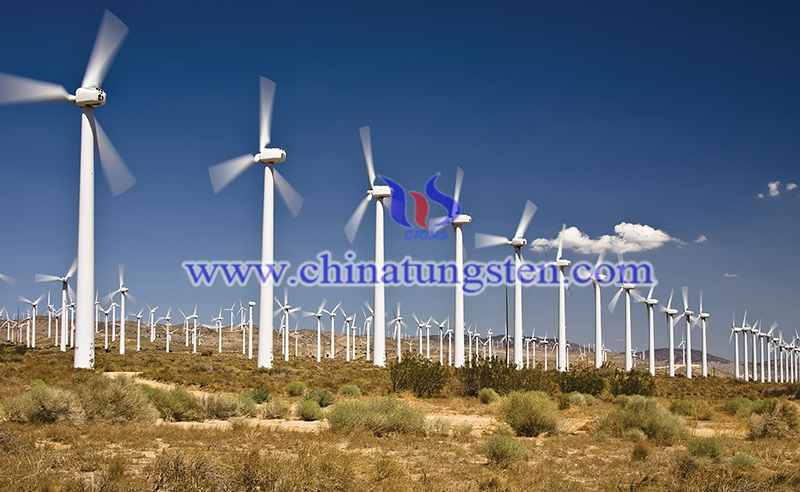Recycling Rare Earths Is Key for Drive Turbines
- Details
- Category: Tungsten's News
- Published on Tuesday, 15 December 2020 20:10
Seren Technologies Limited has developed a technology that recycles rare earths from permanent magnets for sustaining direct drive turbines. Direct drive wind turbines account for one-third of all wind power generation. Compared to other wind technologies they have higher energy output and lower maintenance requirements, which means they are favored offshore. To operate direct drive turbines, permanent magnets are needed - and obtaining these magnets is increasingly complicated.
Despite the green image of wind turbines, the current methods of producing permanent magnets have caused unsustainable and potentially dangerous consequences for the earth. However, a European technology company believes they have found a solution to these problems.
Seren Technologies Limited has developed a technology that recycles permanent magnets. To produce permanent magnets, a resource is known as 'rare earth metals' is required - and 90% of rare earth metals are supplied by China. But the current state of the market represents a threat to the future of direct drive wind turbines for a number of reasons.
First of all, the practice of rare earth metal mining has caused almost one ton of toxic and radioactive waste, which has caused environmental damage to China and surrounding areas. China's environmental regulations are not as strict as those in the United States or Europe, at least for a period of time, which allows China to produce these metals at a much lower cost than the rest of the world.

In 2015, a news feature from the BBC described heavily polluted lakes at the site of one of China's main rare earth complexes. Four years on, China is now making concerted efforts to address the environmental impact, but with demand for rare earths from the rest of the world being so high, the country is faced with an enormous challenge. If the environmental impact was not enough of a dilemma for the West's direct drive turbines, then the trade war between the United States and China might well threaten an end of usage altogether.
The US is said to rely on China for 80% of its rare earth imports, prompting the current Trump administration to list the supply as a threat to home security and to introduce trade levies on rare earth exports as a way of leveraging a domestic solution.
About one-third of the world's drive turbines use direct drive systems, and each turbine can hold 1 ton (2200 pounds) of permanent magnets. Although some magnets are extracted during the decommissioning process and sold to modified turbines, at some point they will enter the "waste stream" at the end of the turbine's life.
The precedent so far has been for these magnets to be recycled with ferrous metals, resulting in the rare earth elements being lost and irretrievable. This is depleting the world's natural resources and further compounding the West’s supply chain controlled by China. Earlier this year, China reduced its exports of rare earth metals causing the price to surge exponentially. And in the current trade war between China and the West, this scenario is likely to repeat soon.
The technology created by Seren focuses on the separation of rare earths from each other. The separation is the crucial factor for rare earth elements as their chemical make-ups are very similar. Separating one from another currently requires intensive, inefficient and environmentally damaging processes. Therefore, recycling of rare earths is a limited activity.
- Rare Earth Manufacturer & Supplier, Chinatungsten Online: www.chinatungsten.com
- Tungsten News & Prices of China Tungsten Industry Association: www.ctia.com.cn
- Molybdenum News & Price: news.molybdenum.com.cn
- Tel.: 86 592 5129696; Fax: 86 592 5129797; Email: sales@chinatungsten.com



 sales@chinatungsten.com
sales@chinatungsten.com